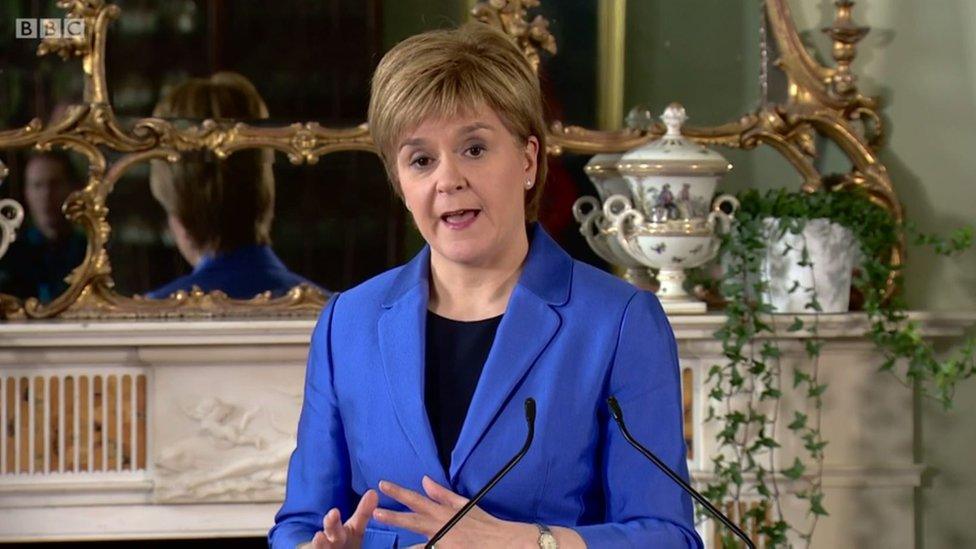Nicola Sturgeon wins Scottish first minister vote
- Published
Nicola Sturgeon won the backing of her 63 SNP MSPs
Nicola Sturgeon is to be reappointed as first minister of Scotland after she was backed for the job by MSPs.
Ms Sturgeon's SNP won its third consecutive Holyrood election on 5 May, but finished two seats short of an overall majority.
Lib Dem leader Willie Rennie was the only MSP to stand against Ms Sturgeon.
Ms Sturgeon, who won 63 votes to Mr Rennie's five, is now the official nominee for first minister, to be confirmed by the Queen.
During the vote, 59 members abstained, backing neither candidate.
Despite the Liberal Democrats finishing fifth in the election after winning just five seats, Mr Rennie said he wanted to underline the fact Ms Sturgeon will lead a minority administration.
Ms Sturgeon became first minister on 20 November 2014, after Alex Salmond stood down in the wake of the independence referendum.
At the time, she defeated Scottish Conservative leader Ruth Davidson - whose party is now the second largest in the parliament - by 66 votes to 15, with 39 abstentions.
Ms Davidson did not stand this time, after pledging during the election campaign to form a strong opposition.
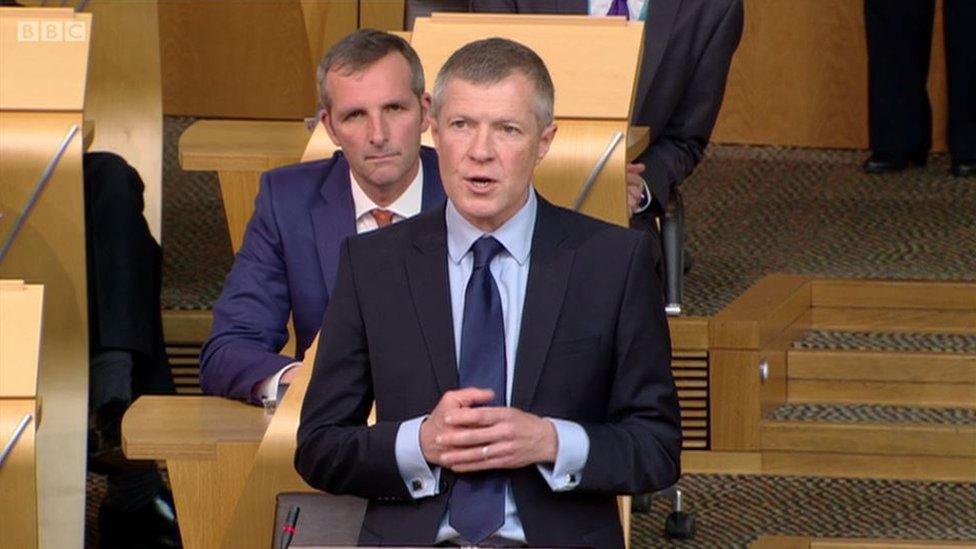
Willie Rennie ran against Ms Sturgeon but won only 5 votes
Ms Sturgeon said she wanted to use the position of first minister to change Scotland for the better.
Calling on MSPs from all parties to support her nomination, she said the SNP had won an "overwhelming mandate to govern", and that she had a "mandate to continue as first minister".
'Outward looking'
She added: "I will lead a government that seeks to win votes, not simply by the force of our numbers, but by the strength of our arguments - and by the support we are able to build for our policies in the country as a whole.
"And we will not assume a monopoly of wisdom. Good ideas exist across the parliamentary chamber and I promise that we will always seek to judge them on merit, rather than on their party of origin.
"That is the open, inclusive and outward looking approach to government that I will endeavour to take."
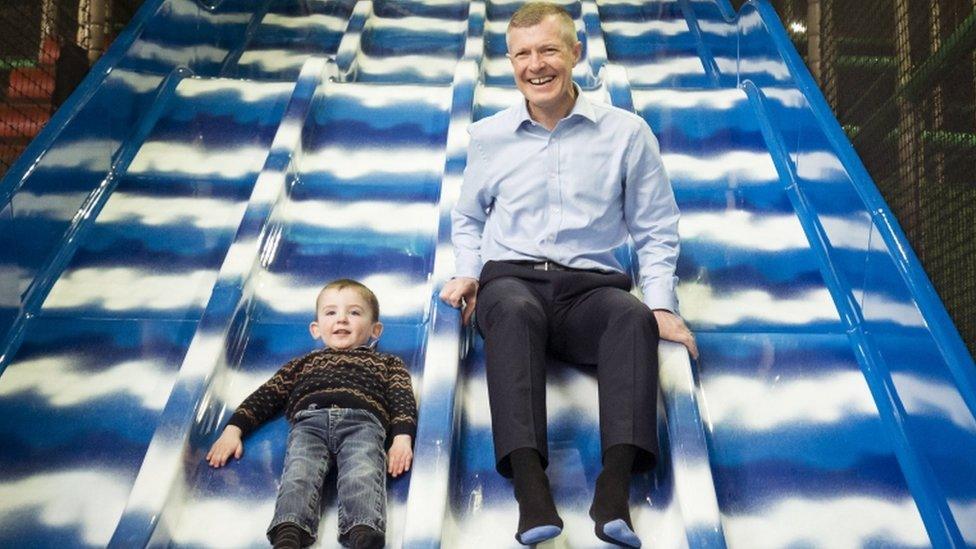
Ms Sturgeon said if the vote was tied, she and Mr Rennie would race down a giant inflatable slide for the job
Ms Sturgeon paid tribute to the "colourful" campaign Mr Rennie had run during the election, and joked that if the vote were tied, they would race down a "giant inflatable slide" to decide who got the job.
Mr Rennie said he had put himself forward to underline that Holyrood does not have an overall majority government, saying all the parties are minorities.
He joked that when he told his son that he was going to put himself forward for the post of first minister, he said "oh dad, you're not are you?"
The Lib Dem leader also took the chance to underline his party's top policy priorities, including education, mental health and civil liberties.
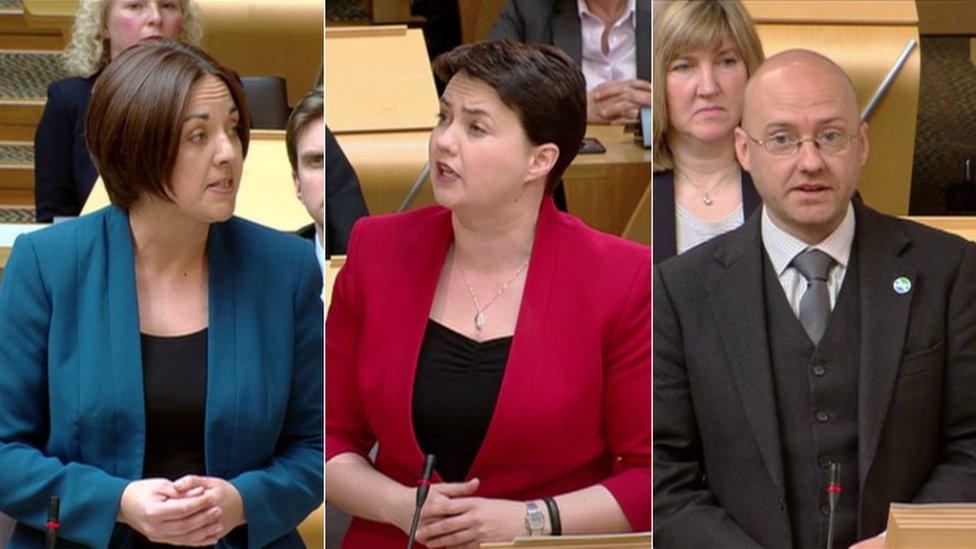
Each of the opposition party leaders gave a speech following the election
Each of the party leaders was given a moment to speak after the vote, with each congratulating Ms Sturgeon on her victory.
Ruth Davidson, speaking for the first time as the leader of the biggest opposition party after her Conservatives leapfrogged Labour in the election, said she would provide "strong opposition" to the SNP.
She said Scotland was about to "embark on a new chapter for devolution".
Labour leader Kezia Dugdale said she hoped Ms Sturgeon used her mandate as first minister to be bold. She said Holyrood had to "shape the future" and not be held prisoner by the past.
Patrick Harvie, whose Greens overtook the Lib Dems into fourth place, urged Ms Sturgeon to "look to those who oppose austerity" for support when deciding budgets, and called for the government to raise its game on climate change.
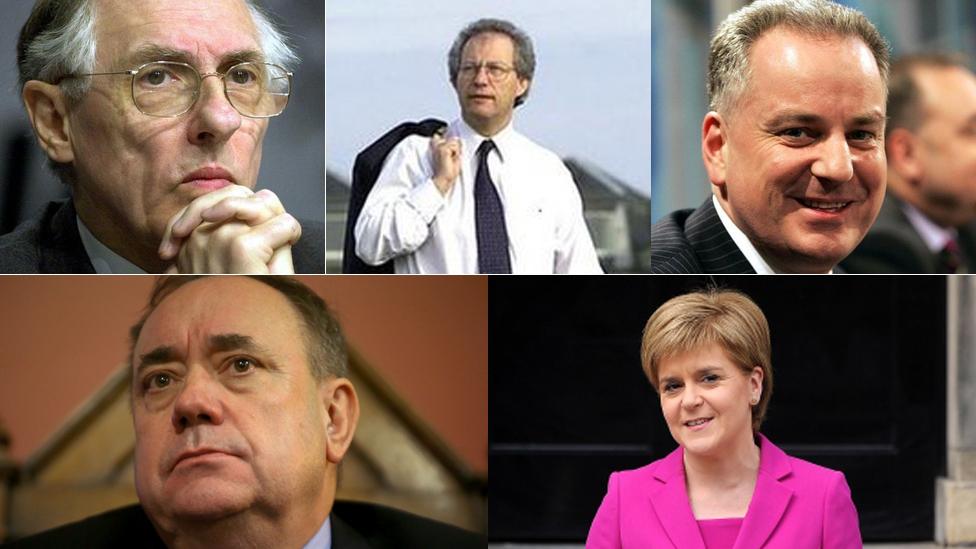
Five politicians have served a first minister since the devolved Scottish Parliament was created in 1999
The SNP has said it will form a minority government after winning 63 of the 129 seats in the election, which also saw the Conservatives win 31 seats, Labour 24, the Scottish Greens six and the Liberal Democrats five.
The post of first minister has previously always been held by the leader of the largest single party in the Scottish Parliament.
But Liberal Democrat Jim Wallace, who was then the deputy first minister - stepped in on a temporary basis when Labour's Donald Dewar became ill, and again when Mr Dewar died in October 2000.
Mr Wallace also found himself in the hot seat when Labour's Henry McLeish quit as first minister in 2001 following a row over the sub-letting of his constituency office in Glenrothes.
- Published12 May 2016
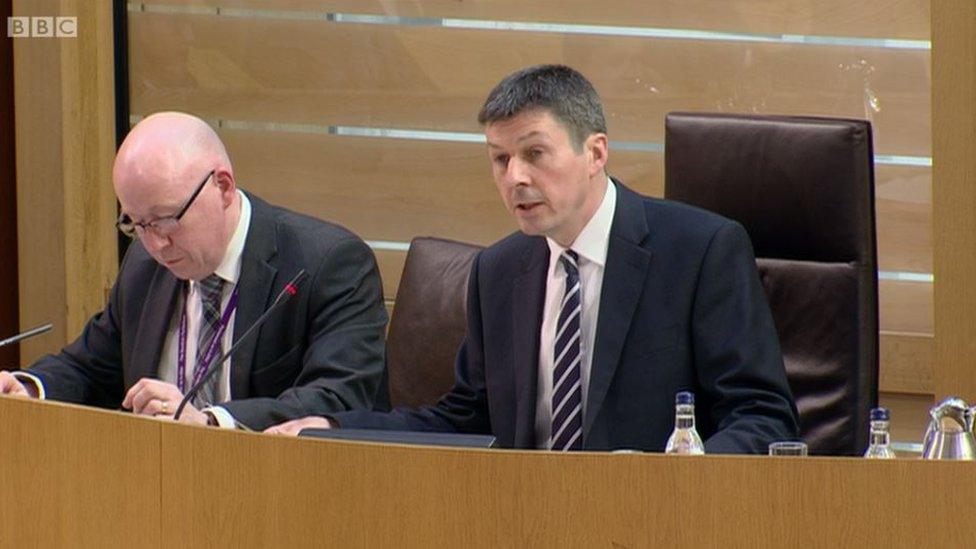
- Published12 May 2016
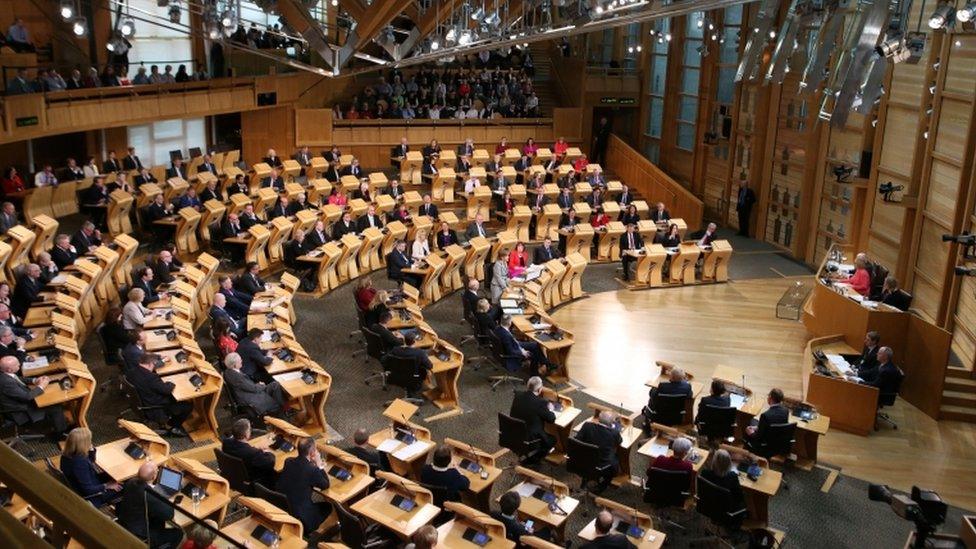
- Published11 May 2016
